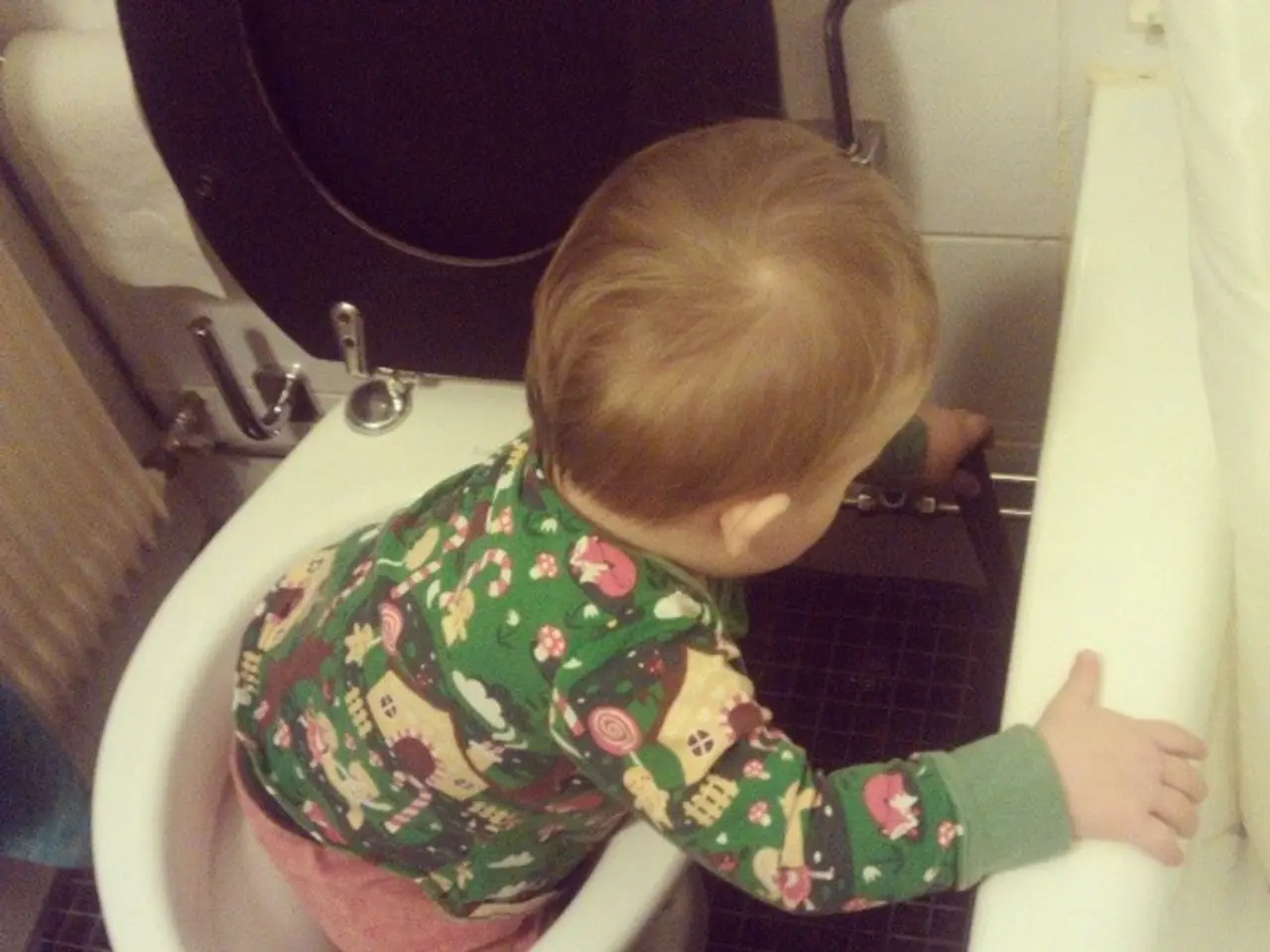Mastering Toilet Training: A Handbook for Parents
Potty training is an essential milestone for toddlers, promoting their independence and hygiene. This process can be a significant step in a child's development, and with the right approach, it can be a smooth and rewarding experience for both parent and child.
Starting the transition from diapers to potty involves explaining the process in a simple way, assisting the child in undressing and sitting on the potty, using positive reinforcement and rewards, and building consistency and routine.
Establishing a regular potty schedule, encouraging the child to use the potty after meals or before bed, and creating a positive atmosphere without pressure are key to creating a consistent routine. Using engaging, stress-free resources like children's ebooks or interactive stories can make potty time fun and enjoyable for your child.
For children with special needs or challenges like poop withholding or chronic constipation, it is recommended to consult certified potty training experts who provide tailored strategies and support. Identifying underlying causes of resistance or fear and addressing them with patience and empathy is crucial in overcoming these challenges.
Common challenges in potty training include accidents, nighttime training, and resistance from the child. Strategies to overcome these challenges include staying patient, involving the child in decision-making, and using rewards or incentives. Offering praise and rewards when your child successfully uses the potty can reinforce their independence.
When accidents happen, it's crucial to stay calm and composed. Offer reassurance to your child and avoid punishments or shaming. Encouraging your child to make choices within limits, such as selecting a book or toy to keep them entertained while sitting on the potty, can add a sense of ownership and excitement.
Preparing for potty training involves choosing the right time, setting up a potty training routine, and gathering necessary supplies like a child-friendly potty chair, training pants or underwear, wipes, extra clothes, cleaning supplies, a step stool, books, or toys for the potty area.
Gradually increasing the duration between potty breaks as your child becomes more comfortable and confident can be beneficial. Consistently reminding your child to use the potty is crucial for helping them understand and develop the habit of using the potty.
Potty training instills essential life skills, improves hygiene, and lays the foundation for a child's well-being. By following these tips and staying patient and consistent, parents can help their children successfully navigate the potty training journey.
- Parenting involves guiding children through milestones, such as potty training, promoting their independence and hygiene, essential for their development.
- Learning about potty training should include understanding the process, assisting the child, using positive reinforcement, and establishing a consistent routine.
- Collaborating with kids during potty training, like involving them in decision-making about rewards or incentives, helps create a smooth experience for both parent and child.
- Family-health and mental-health considerations are vital during potty training; addressing special needs or challenges requires consulting certified potty training experts for tailored strategies and support.
- Success in potty training hinges on overcoming common challenges like accidents, nighttime training, and resistance, using strategies like staying patient, offering rewards, and encouraging choices within limits.
- Potty training also emphasizes health and wellness, with safety measures like cleaning supplies, step stools, and child-friendly potty chairs essential.
- Engaging children in fun activities, like using children's ebooks or interactive stories during potty time, can make the experience enjoyable, promoting a positive association with learning.
- Deliberate preparation for potty training, like choosing the right time, setting up a routine, and gathering necessary supplies, ensures readiness and supports a child's successful navigation of the potty training journey.




